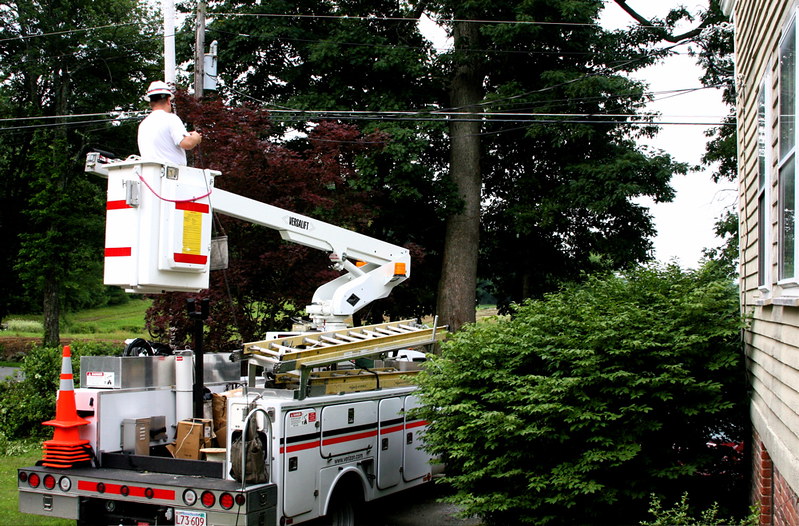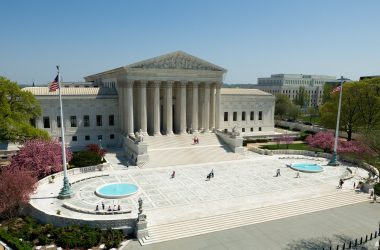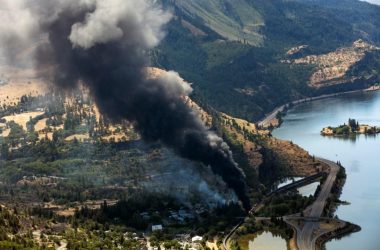Oregon’s broadband office doesn’t have the staff or plans it needs to take advantage of up to $1 billion in federal money to expand internet access, according to an audit released Wednesday.
The report from the Audits Division of the Secretary of State’s Office found that the state has work to do to effectively allocate money and help Oregonians get online. The state stands to receive between $400 million and $1 billion in federal funds for broadband under the $1 trillion bipartisan infrastructure law passed in 2021.
“Both the Legislature and the department have taken action, we’re staffing up, we’re getting there, but we are behind and we’ve had some significant consequences because of that,” said Kip Memmott, the state audits director.
Former Gov. Kate Brown created the Broadband Office within Business Oregon in 2018 with a single employee, and the office didn’t add more employees until early 2022. It now has 12 positions, though not all are filled. Auditors urged the office to add staff to administer federal grants.
A pre-pandemic 2020 study found that an estimated 1.7 million Oregonians lived in areas without broadband connections or with outdated basic services that were insufficient to meet current demands.
Rural areas and tribal lands are less likely to have access to broadband than urban areas, largely because of environmental factors that make building infrastructure more expensive. For instance, the audit found that it costs close to $55 per foot to lay fiber in the 644,000 acres of buttes, canyons, forests and rocky land of the Confederated Tribes of Warm Springs, but only $5 per foot in the Willamette Valley, where soil is softer and easy to dig.
“It will likely take innovative solutions, such as giving appropriate due deference to tribal grant applications, allowing in-kind services in exchange for providing up-front capital for infrastructure, and other non-traditional approaches that respect tribal sovereignty and traditions, while providing affordable internet service to the Tribal communities in Oregon,” the audit said.
Access also differs across racial and economic lines. The audit found that fewer than half of Oregon households in the lowest income quintile use the internet at home, compared to 95% of households in the top quintile. And the audit cited national research that showed white adults have significantly higher access to broadband and home computers than Black or Hispanic adults.
The rise of remote work and school, as well as internet-dependent services such as telehealth appointments, exacerbated the existing digital divide after the pandemic struck.
And the audit found that the state doesn’t have a clear picture of coverage gaps. A map produced by the office using data from the Federal Communications Commission shows that census blocks are considered covered if a single home in the block can get coverage. Census blocks can stretch for miles in rural areas, and areas aren’t eligible for federal assistance if the map shows that they have broadband coverage.
“Without an accurate picture of Oregon’s current broadband infrastructure deployment and utilization status, it is difficult for the Broadband Office to identify the areas in most need of service and strategically target its efforts,” the report said.
Oregon Capital Chronicle is part of States Newsroom, a network of news bureaus supported by grants and a coalition of donors as a 501c(3) public charity. Oregon Capital Chronicle maintains editorial independence. Contact Editor Lynne Terry for questions: [email protected]. Follow Oregon Capital Chronicle on Facebook and Twitter.
STORY TIP OR IDEA? Send an email to Salem Reporter’s news team: [email protected].

Julia Shumway is deputy editor of Oregon Capital Chronicle and has reported on government and politics in Iowa and Nebraska, spent time at the Bend Bulletin and most recently was a legislative reporter for the Arizona Capitol Times in Phoenix. An award-winning journalist, Julia most recently reported on the tangled efforts to audit the presidential results in Arizona.









